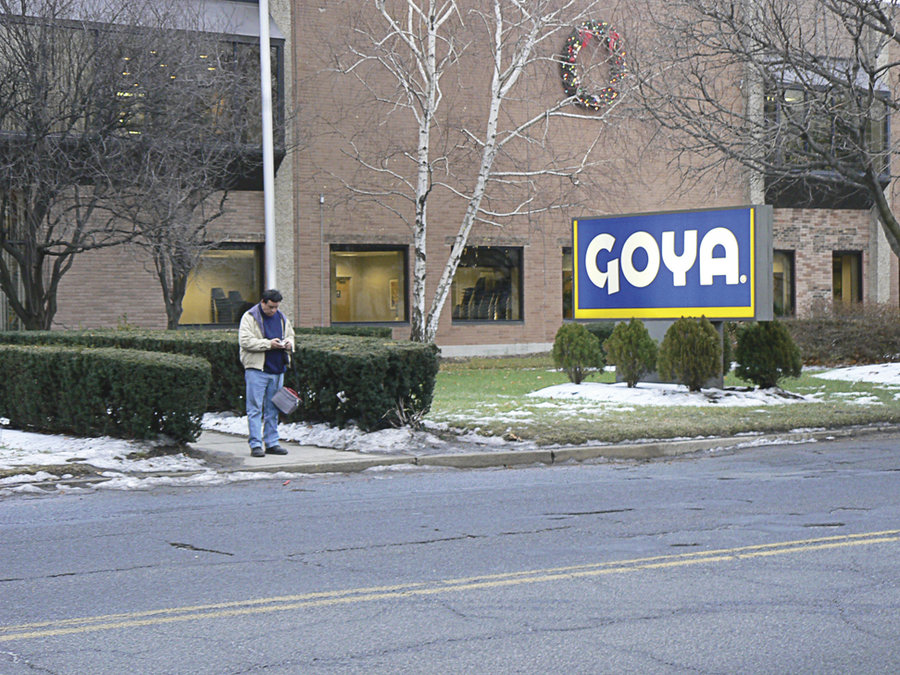A divided Jersey City Council has approved a controversial package of tax breaks for Goya Foods, Inc., the Secaucus-based Latin food manufacturer that plans to build a new facility in Jersey City.
The city’s handout to Goya has angered some residents because it comes on top of $81.9 million in tax breaks that the company got from the state for the same facility.
The council approved the local tax break on Wednesday, over the objections of residents, by a vote of 5-2. Two councilmen on the nine-member City Council abstained.
Those who supported the measure said the city currently receives minimal property taxes on the site of Goya’s future facility, far less than what it will receive once the company’s new facility is built. The property currently contains a small warehouse.
‘Tax abatements have a place in the city. They can incentify new job creation and affordable housing. But this situation doesn’t do either of those things.’ – Steven Fulop
____________
Council members Steven Fulop and Viola Richardson opposed the tax measure, while council representatives Michael Sottolano, Nidia Lopez, Peter Brennan, William Gaughan, and outgoing Councilwoman Kalimah Ahmad voted in favor.
Outgoing Councilman Ray Velazquez abstained, as did Councilman David Donnelly.
Millions in tax breaks
Tax deals in Jersey City are controversial. The deals often allow the companies to negotiate what they will pay each year rather than being subject to fluctuating property taxes. They also allow the city to keep most of the money, rather than splitting it with the county and schools. But taxpayers argue that they end up paying a higher share of county and school taxes as a result.
Goya plans to build a new 615,000-square-foot headquarters at 360 County Rd. It will include 577,000 square feet of warehouse space and 38,000 square feet of office space.
The city’s 20-year tax break will require Goya to pay $806,400 annually for the first six years the company is in Jersey City. In years seven through 12 the company will pay $892,950 each year. In years 13 through 20, Goya will pay $979,500 each year.
Under the company’s agreement with the city, Goya will pay an annual service charge that will be passed along to Hudson County for county taxes and will have to pay an annual administrative fee. Both of these fees will increase incrementally over the duration of the 20-year agreement with the city. Goya’s annual county tax fee will start out at $40,320, and the annual administrative fee will start out at $16,128.
The company has also agreed to pay a one-time sum of $114,700 to Jersey City’s Affordable Housing Trust Fund.
Goya will not contribute to the local school system.
Given that the city currently receives only $299,300 in property taxes from the 360 Count Ave. site, the council majority said the city’s agreement with Goya is a good deal.
“This project will bring tax revenue to a strip of land that hasn’t seen any commercial action,” said Sottolano. “The city gets less than $300,000 in taxes from this land now. In the first six years of the abatement will pay over $5 million in tax revenue to the city and county.”
The state Economic Development Authority last month approved an $81.9 million tax credit for Goya under its Urban Transit Hub Tax Credit program. Under this program, the state offers tax incentives to certain companies that relocate to nine designated urban transit hub areas, one of which is Jersey City. To be eligible for the program companies must employ at least 250 full-time employees.
Too few jobs?
Some members of the council questioned why the city would offer a tax break to a company that has already been given a tax incentive from the state. They also questioned Goya’s claim that its new facility will create new jobs for Jersey City residents.
The company said its Jersey City facility will create between 324 and 493 new permanent jobs, in addition to 150 temporary jobs during construction. But James C. McCann, an attorney for Goya, acknowledged that most of these jobs will actually be those of current employees who will be transferred from the company’s facilities in Secaucus and Long Island.
“Tax abatements have a place in the city. They can incentify new job creation and affordable housing. But this situation doesn’t do either of those things,” said Fulop. “New Jersey Policy Perspective, an independent think tank, did a review of this tax abatement and they said it will create six [new] Jersey City jobs. All the other jobs are transfers.”
A controversial vote
Some residents were dismayed that Ahmad, an appointed council member who lost her bid to be elected to her seat last week, cast the deciding vote in favor of the tax package. Ahmad told residents she voted for the measure to protect the jobs of Jersey City residents who currently work for Goya, whose jobs could be eliminated if the company moved to another state.
Velazquez, another appointed council member who lost in the special election, abstained without offering an explanation of his vote.
The Wednesday council meeting was the last for Ahmad and Velazquez.
Donnelly also abstained, noting that his employer, United Way of Hudson County, has often partnered with Goya on food donation projects.
E-mail E. Assata Wright at awright@hudsonreporter.com.
